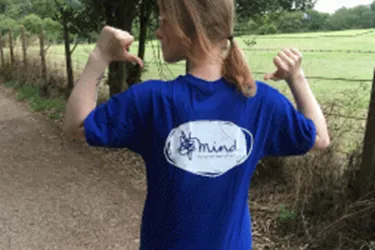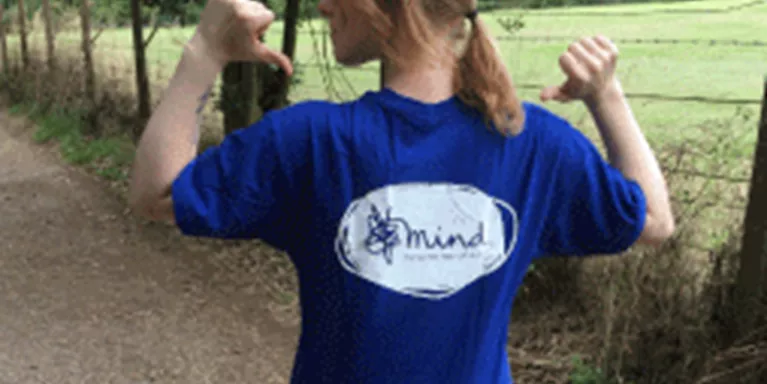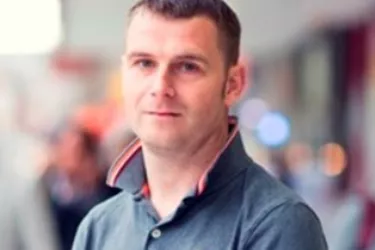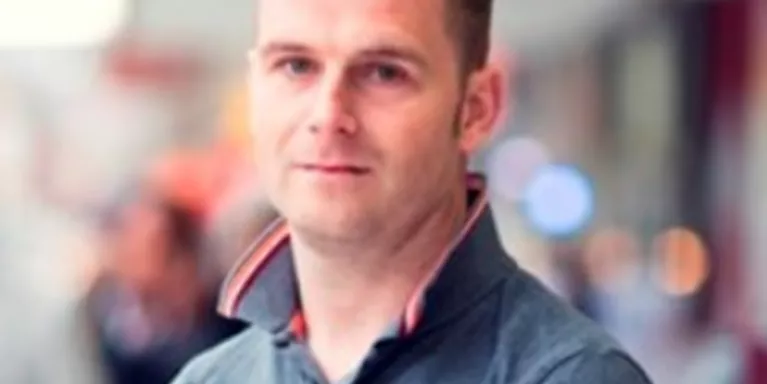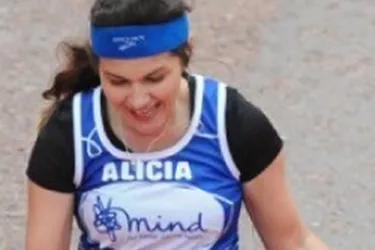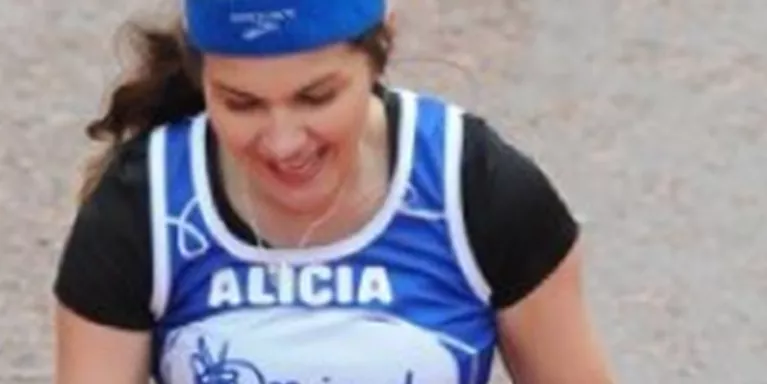Remembering Chris through Mind
Trigger warning: this blog discusses suicide.
Amy’s husband, Chris, took his own life at the age of 29 after struggling with COVID lockdowns and the birth of their son.
This Mental Health Awareness Week, she reveals how we helped her through the worst of times, and why she raised money for us.
I’d been with Chris for 11 years since we were 18. He’d always been the class clown and a bit of joker, but it all changed when Covid hit. Our son Ted was born in January 2020 and the lockdown started a couple of months later. It meant we had to cope on our own with a newborn, and our family and friends couldn’t meet him.
The change in Chris gradually become more noticeable. He was making fewer jokes and seemed more fragile. It wasn’t until 2022 that Chris finally said he was going to see the GP to talk about how he was feeling, and maybe get some medication. I said I didn’t mind who he spoke to, as long as it was someone – it didn’t have to be me.
I went on to Mind’s website to find resources for him. I was spending more time trying to support him, but I think by then it was too late – his mind was made up.
Chris took his own life in November 2022 when he was just 29 years old.
“A member of The counselling team at Leeds Mind had also suffered a loss by suicide. It was nice to speak to somebody who had gone through what I had.”
After Chris’ suicide, I spoke to the Suicide Bereavement team at Leeds Mind. They’ve been fantastic. A member of the counselling team had also suffered a loss by suicide. It was nice to speak to somebody who had gone through what I'd had and could feel what I was feeling. To be able to see somebody a few years down the line with their journey is reassuring when you're so stuck in the darkness of the first few months of it.
They've been there for me when nobody else has, and It’s opened the doors to all the different services Mind has to offer.
Mind mean so much to me. They're like friends now. They're just an incredible support. Everything is very non-judgmental and done at my own pace.
“I've learnt how well mental health problems can be hidden, especially depression. The biggest take away for me is to check in on people.”
Chris was a classic male stereotype and masked his feelings. He would maybe tell his friends he wasn’t feeling great, but he’d never go more in-depth than that.
Through mine and Chris’ experiences, I've learnt how well mental health problems can be hidden, especially depression. The biggest take away for me is to check in on people. Even if you don't think there's a problem, you never really know what anybody is suffering with or going through. It might not show on the outside, and it’s up to them whether they choose to discuss it or not, but it’s important for them to know that someone is thinking about them.
As we know statistically, men unfortunately do struggle with talking about mental health more than women do. Our cultural mindset needs to shift so these conversations can be the norm.
Mental health needs to be seen as important as physical health because it really is. Until we have a cultural shift where talking about mental health becomes the norm, There will always be people like Chris left behind.
It's disappointing, but not entirely surprising that 2 million people are waiting for mental health support. Targets needs to be put in place, and we need them quick. We need more nurses and counsellors for starters. We also need to give the NHS the funding and the resources for mental health that it needs. We must stop relying so heavily on charities.
Sadly mental health is so underfunded so it’s more important than ever to raise money for charities like Mind, which can only do so much with the amount of money they have.
Time is a good healer. You realise life does go on without that person. You don't forget about them, and you've obviously changed by that experience, but there are a lot of things to look forward to, nonetheless.
It helps to be productive. That’s why my friends and I raise so much money for Mind. We do things like the Great North Run or bike challenges. When somebody is already gone, you can feel a bit useless; that you can no longer do anything to help them. But you can help other people. So if you can find a positive way to channel some of that, it can really help massively. Every challenge we’ve done, we’ve done in Chris’s name. It’s certainly helped all of us come to terms with the loss of Chris.
Related Topics

Information and support
When you’re living with a mental health problem, or supporting someone who is, having access to the right information - about a condition, treatment options, or practical issues - is vital. Visit our information pages to find out more.
Share your story with others
Blogs and stories can show that people with mental health problems are cared about, understood and listened to. We can use it to challenge the status quo and change attitudes.










